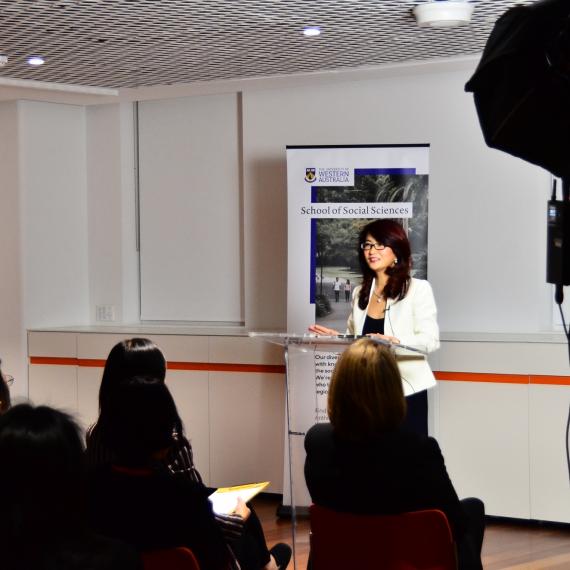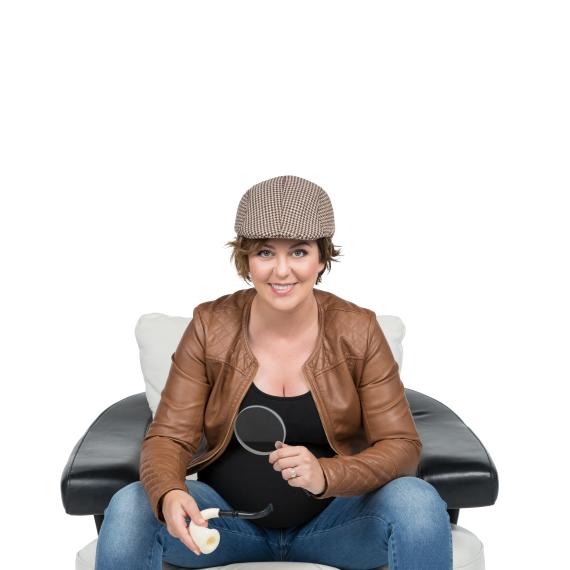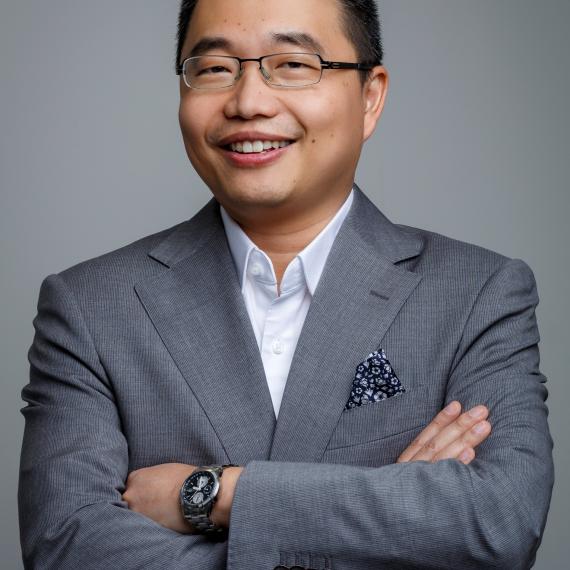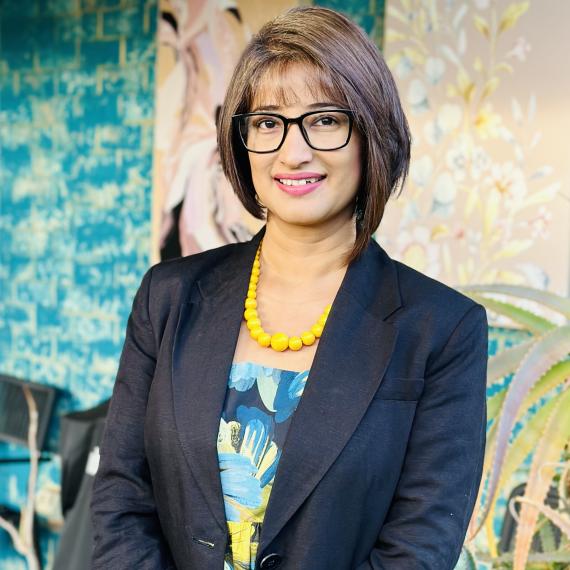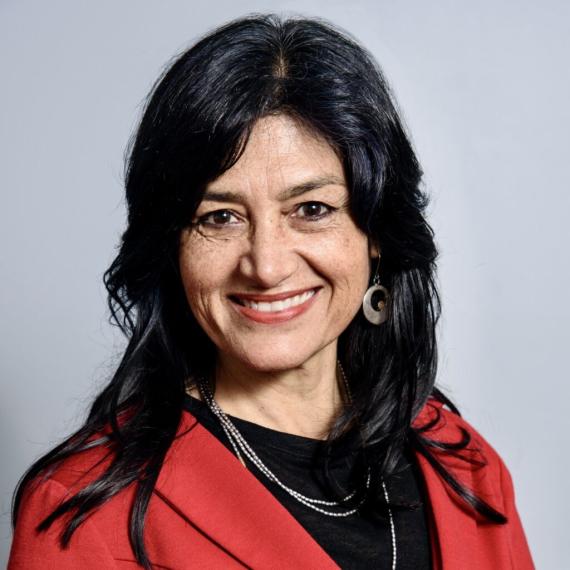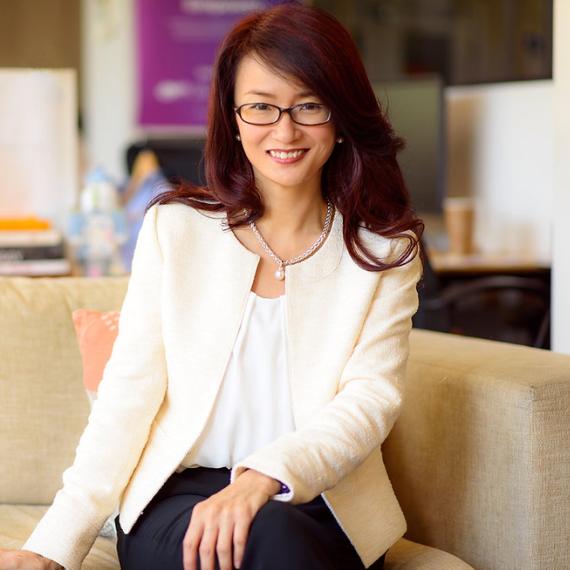
My Australia Story: Nilesh Makwana
Multicultural Expo 2024
For many people from diverse cultural backgrounds, the challenges of building a successful career in Australia can seem daunting, and perhaps insurmountable.
Is "working hard and being passionate" enough to help you find your dream job in a new country? New life, new path, new beginning… how can you achieve success in your career?
Nilesh Makwana is an Indian-Australian social impact entrepreneur and co-founder of illuminance Solutions, an award-winning tech firm recognised for its diversity. He also founded West Tech Assemblage, an event fostering collaboration among tech leaders in Western Australia and co-founded Borderless Gandhi to promote peace and equality through art.
Nilesh is dedicated to closing the digital literacy gap for marginalised communities. His book, Terminal 4, chronicles his journey from childhood in India to his entrepreneurial success in Australia.
These 30-minute sessions, chaired by Associate Professor Maggie Jiang from the UWA School of Social Sciences, promise to provide invaluable insights into achieving professional fulfilment in Australia.
-
Episode transcript
[Recording] Welcome to the Western Australian Museum Boola Bardip talks archive. The WA Museum Boola Bardip hosts a series of thought-provoking talks and conversations tackling big issues, questions and ideas and is delighted to be able to share these with you through the talks archive. The talks archive is recorded on Whadjuk Nyoongar Boodjar. The Western Australian Museum acknowledges and respects the traditional owners of their ancestral lands, waters and skies.
Maggie John: Good morning everyone. My name is Maggie John. I'm Associate Professor in Cross-Cultural Communication at UWA School of Social Sciences. I'm also the founder and chair of My Australia Story Public Talk Series. I'd like to begin by acknowledging the Traditional Owners of the land on which we meet today, and pay my respect to their elders, past, present and emerging.
Storytelling plays a crucial role in highlighting the diverse career journeys and contributions of migrants, enriching our understanding of their impact on society. And through these narratives, we celebrate the resilience and achievements of individuals who have forged their paths in a new land. The My Australia Story initiative aims to share the stories of individuals who have chosen Australia as their home and have built successful careers. Now, we hope this program serves as a wellspring of inspiration for individuals from all walks of life, transcending cultural barriers, boundaries. And we are very proud that this program can be part of the 2024 Multicultural Expo.
Now, our first speaker this morning is a visionary leader whose journey in Perth, from international student to a globally recognized tech entrepreneur is nothing short of inspiring. Mr. Nilesh Makwana, arriving in Perth in 2012 with big dreams and an even bigger heart. Since then, he has become a celebrated and well recognized leader, known across our community as a passionate changemaker and a champion for diversity. He has built one of Australia's most inclusive workplaces and continues to push boundaries in the tech sector and beyond. His leadership contributions have earned him national and international recognition. Among his many achievements, he was awarded the prestigious Microsoft Global Award for Social Impact in 2019 for his work in the disability and aged care sectors. And that same year, the Australian Computer Society named him the Gold Disruptor of the year. In 2020, WA Business News honored him with the 40 under 40 Award. And on that same evening, he received the City of Perth Strategic Alliance Award. His bestselling book, Terminal 4 - an Entrepreneur's Journey from Bicycle to Business class, was the first book by an international student to be launched in WA Parliament by the President and Speaker of the House. A groundbreaking moment attended by the WA Premier and many other ministers. Please join me in giving a welcome, warm welcome to Mr. Nilesh Makwana.
Nilesh Makwana: Thank you Professor Maggie. It's a beautiful to be here this morning and back to where it all started a year ago with the launch of my book at the same stage. It's been amazing to be back in Museum where Alec Cole, the CEO, had organized the book launch with the Premier. So when I saw the stage and the venue, I was like, My God, this is going to be emotional day. And I couldn't thank enough the Professor Maggie, that you organized and gave me this opportunity to be part of this series. So thank you for that. A year ago my father was on the stage, from India, which is where I'm from. And Premier of Western Australia was here along with the CEO Alec Coles, and we had a book launch here. And that was the most amazing emotional moment which I ever had in my life. Although I have received many national and global awards and been around the world, 54 countries travelled. But that moment being on the stage with my family and friends and launching the book was the most, I get to say, high achievement, personal achievement rather than any professional or any awards or other success in everything. Because when you have your family with you and they feel proud of you, that's where you feel that you have achieved something. So it was beautiful to be here a year ago.
Now my story, which is, which I need to present today, is a part of the My Australia Story. It starts in India, where I was a young child, not interested in studies in school and cycling, bicycling around the small city in Gujarat state, where I always, was interested in selling stuff, making money and being outside the classroom. And of course, not studying and not being in the classroom means I didn't pass any exams. So when it came to year ten, I failed four times. And high school was not something which I could pass. And because I wasn't interested in studies and not doing good, my father said you should go and do some work. And I volunteer in a computer shop, where I started learning hardware, assembling computers and HTML internet. And it was 1999, 2000 where internet was booming and coming up. Luckily, I got interested in computers and learned web designing, became a web developer and launched my first business in 1999 to do website designing. And by 2002, I must have designed more than 300 websites for exporters and manufacturers and everything. And I was making money, I had office, I had a laptop, I had a car, I had a Nokia nine 500 phone. So I was really happy, but I was school failed, you know. And there was this aunty, my great aunty, and she always forced me to say, you should go back to school and finish your studies. You can't... you are such a smart boy, you have, good, good, interest in technology, you're doing so well, making money. But if you're not studying and you don't even have a high school degree or whatever, it doesn't look good. You should give it a try again. And she kept enrolling me for the school again, and again and helped me to learn English as well. So finally, I gave a crack again, fifth time, and with a lot of tuitions and extra help, I managed to pass the year ten again.
And then it got me interested that now I can actually study. I continued studying and went to year 11 and 12 in Cambridge in UK and did my honors degree in London. Four years with aviation management, and I work at Heathrow Airport in London for six years as an aviation graduate and student with the airline called KLM Royal Dutch Airline. And part of the airline, when you get a staff ticket, you can abuse it. And I, and I went to 54 countries around the world and many times in business class and had a good time traveling the world. And that's where I became a student of the world you could say. Because in early days, as you remember when I said before that I was not interested in studies and always outside the classroom bicycling and doing, a lot of other stuff than study. But when I graduated from university and got the airline job, that's where my real study started, because I was visiting different countries, different culture, different people, and I was learning about their history and their religions and their sports and their family background. And that was actually where I think I grew as a person. When you travel, you expand your knowledge and your experiences and your biases start to come down and everything, and you create inheritance versus acquired diversity. And acquired diversity is when you have experienced something on your own and you have gone out there and you have lived in that environment and you have managed to create an open mindset. And then that traveling made a huge difference in my life.
And part of the traveling, I came to Australia 2011 to backpack. And while I was here, I saw that half of Britain was here already. I'm like all the Britishers are here. Why are they not in London? And then, then when I discover that it's a beautiful state, it's a beautiful country, and we have such amazing weather here, we got a great economy, great lifestyle. So I'm like hmmm, I should follow them, you know? And I came to Perth, Western Australia to study my Masters at Curtin University. And then I went and moved to ECU. But when I came to Perth, Western Australia, I discovered that it's the, it's the remote city, but it's close to 2.5 hours difference with India. So closer to India and it had, it was a regional status, which means you could get PR, Permanent Residency easily. And because everybody is going to Melbourne and Sydney, the competition is less so you can be a big fish in a small pond very easily. And also, I discovered that unemployment rate in 2012 was 1.3%, compared to the rest of the states and everything, and the highest amount of jobs were available here because of the mining boom and everything. So I thought Perth is a great choice. And once you get your formal residency and PR, you can, you can move anywhere else if you like. But I'm still here because this is truly heaven.
And as soon as I arrived, I knew that it's going to be difficult to find a job, because when you are an international students and you have a part time working right and everything, people expect you to work in petrol station or Uber or working a warehouse or something. And I thought, I'm not going to do that. I'm going to follow the Britishers. And as they put a flag in the country and says, this is Australia for me, I'm going to put a logo, a business card, and I'm going to say, I'm a businessman and I just need to create a logo instead of a flag here to come and claim my land, you know? So I claim my position and I said, I'm going to start a business and I'm not going to, look for employment, but I'm going to create employment. And from day one, I started looking for projects, and within a few weeks I managed to get a few projects. And one of the things I learned during those early days was in Australia, or in specifically in Perth, if you get opportunities to deliver some projects and if you do a good job, people will give you a chance again and again here. They'll invite you again because you delivered. And the word which I learned on those initial days, one of my client called me and says you are 'ridgey-didge'. And 'ridgey-didge' in Australian slang means you are a good bloke, you are trustworthy or you do a good job. And I thought, okay, that's all I need to be when I'm in Perth. Be 'ridgey-didge' and as long as you are doing a good job and taking money and delivering the work, you always will have enough business. And slowly, slowly we started hiring other students, people around the world, and the business became the most diverse business, which is Microsoft Technology, tech for social impact business.
And we designed solutions for aged care disability sector. And we managed to create the most diverse workforce where we have 26 different nationalities. We got people with disabilities, we got seniors, we got LGBTQ. Plus we have refugee from Afghanistan and Burma. Then we got Banksia Hill Detention Centre ex-prisoners. And then we have young, old, male, female, you name it, we have everything. But how it became diverse is because I was open to giving opportunity to whoever had working rights and who can do the job. Not because they were young or old, or male, female, or where they came from. As long as they had the working rights and they can do the job, they're welcome and they're in probation. So if they don't do a good job, you have to let them go too. But you support them, you train them and you allow them to learn and grow and everything. So slowly, slowly, the business became quite diverse and it won a global award from Microsoft for social impact. And then later on it won many other awards, including the Office of Multicultural Interest Diversity Award, Business News Awards and everything. So the business really took off, and me personally had a fortunate success, that not only financially but within the community. I started to volunteer quite a lot of different places and, and they invited me to sit on the boards and judging committees. A lot of things, great things were happening in terms of your profile building, and the community really took me in, in Western Australia.
And over the years I've been invited to share my story and journey and inspire many other students and migrants who come to this country and study. The idea was to launch the book and, help other migrants. And this is where the launch happened here in Western, WA Museum a year ago. And this book, well the Premier himself read it, and that was the biggest moment in my life. Where I felt that all these 40 years of your journey was put together, and it was celebrated with the family and father and then some of the biggest names in the town. And that's what I felt, that, all that hard work and discipline and they were giving up and, support of your aunty and other family members paid off. And now I'm still here and managed to, despite failing four times in school, I was able to acquire master's degree, create jobs and help others and everything. So I would say that Maslow's hierarchy of need was quite met. And that's when you have safety, security, you’ve got the job, also you’ve got the community well-being. And then top layer is the self-actualisation. And when you reach to that stage, that means you are fortunate and you have managed to achieve all the steps in the Maslow's hierarchy of the needs. So I can't complain anything in life and Western Australia is truly heaven for me. And it was the right move to come here. And being here in WA Museum sharing this journey is true honor.
And once again, I like to pass on my congratulations to Professor Maggie for giving me this opportunity to be here. And also among Dr Sandy Chong, as hers is another remarkable story. And then when you are on stage with Dr Sandy Chong, who you will hear next hopefully, as she’s a great role model out there for everybody. So I'm fortunate that I'm on stage today with her, and we are doing this talk. So thanks for having me. [applause]
[Recording] Thanks for listening to the talks archive brought to you by the Western Australian Museum Boola Bardip. To listen to other episodes, go to visit.museum.wa.gov.au/episodes/conversation where you can hear a range of talks and conversations. The talks archive is recorded on Whadjuk Nyoongar Boodjar. The Western Australian Museum acknowledges and respects the traditional owners of their ancestral lands, waters and skies
More Episodes
Join Dr Sandy Chong for a special Multicultural Expo edition of My Australia Story.
Forensic Scientist Associate Professor Paola Magni will share her career journey as the featured guest in the sixth edition of the My Australia Story conversation series.
Join Dr Marcus Tan, an experienced medical doctor, healthcare & technology entrepreneur and company director, in this edition of My Australia Story.
Dr Parwinder Kaur, Director, DNA Zoo, shared her career journey as the featured guest in the fourth instalment of the My Australia Story conversation series.
Career Journeys of First Generation Australians - Meet James Jegasothy, Executive Director, Office of Multicultural Interests
Dr Pilar Kasat, CEO of Regional Arts WA, will share her career journey as the featured guest in the second instalment of My Australia Story conversation series.
The first in a series of My Australia Story conversations, meet Dr. Sandy Chong (BCom Management and Marketing, 1996, PhD Information Systems, 2003).
